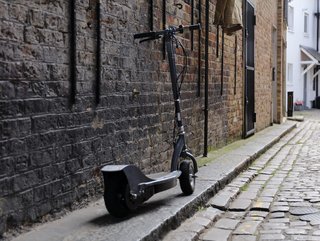TIER Mobility announces corporate sustainability strategy

TIER Mobility, a shared micro-mobility provider, has released its Corporate Sustainability Strategy, setting the company's framework for action across the areas of emissions reduction, environmental protection, social responsibility and sustainable governance.
With a mission to change mobility for good, the company is providing people with a wide range of electric vehicles, and is helping cities to create more sustainable environments and move towards a zero-emission future.
Following the recent acquisitions of nextbike and Spin, TIER is now present in 560+ cities and communities in 33 countries with a fleet of more than 300,000 vehicles.
Lawrence Leuschner, CEO of TIER Mobility, said: “I set up TIER to change mobility for good by encouraging people to get out of their cars and use more sustainable transport options. I’m delighted to report that since our founding in 2018, we have made great progress on that journey. I really am proud of the difference we’re making to our cities - but we know there is still much more to be done.
“That’s why we’re introducing our Corporate Sustainability Strategy, which incorporates our core sustainability values into all aspects of decision-making, helping us to set measurable long-term goals and be more transparent about the progress of our mission.”
Sustainable strategies to help meet climate change targets
Its new strategy defines five action areas where TIER can have the greatest impact on sustainable development:
- Driving climate action
- Closing resource loops
- Shaping sustainable urban environments
- Putting people first
- Embedding sustainability into supply chain management
For each area, high-level objectives, tangible targets and key performance indicators were defined to allow for more transparency and the continuous tracking and evaluation of progress.
Data collected by the company found that Germany achieved the greatest shift from car trips to e-mobility journeys. Almost 25 million kilometres of car journeys were replaced in the 104 German regions TIER operates in, including Berlin, Hamburg, Stuttgart and Dortmund.
France, Sweden, Norway, and Poland recorded the next highest savings, collectively avoiding more than 2 million kilograms of carbon emissions. This equates to an individual taking 12,756 aeroplane trips from Stockholm to Warsaw.
Ailin Huang, Head of Sustainability at TIER Mobility, said: “Promoting sustainable development is without doubt one of the most pressing challenges we face, which is why we have unveiled this new framework to ensure that TIER is performing to the highest standards in this area.
“As we look forward to implementing these new measures needed to reach our ambitious targets, we are also inviting our colleagues in the industry, city partners and policymakers to scale our actions and create enabling environments for widespread micro-mobility adoption. We can’t afford to compromise on sustainability.”






